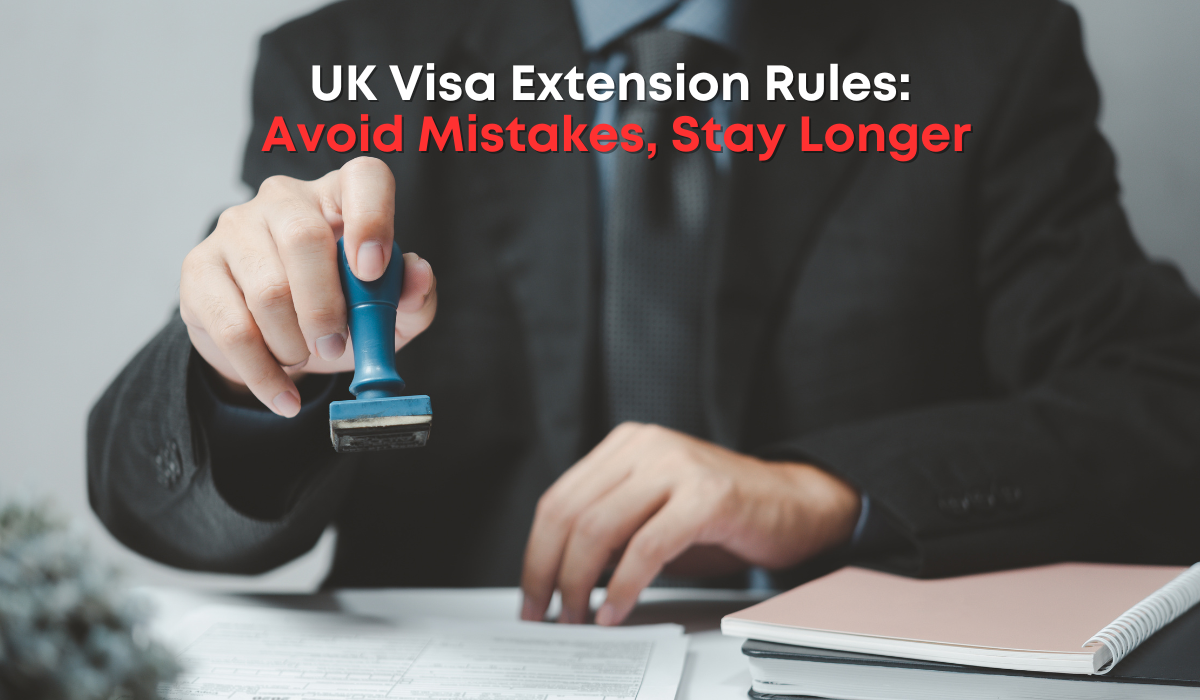Which Visas Can Be Extended?
The eligibility for a visa extension depends on the type of visa you hold. Here’s a breakdown:
Visas Eligible for Extension
- Skilled Worker Visa: Extendable multiple times if eligibility criteria are met, such as maintaining sponsorship and working within the same occupation code.
- Health and Care Worker Visa: Similar to the Skilled Worker Visa but tailored for healthcare professionals.
- Family Visas: Spouse, partner, or parent visas can be extended if the relationship and financial requirements continue to be met.
- Student Visa: Extendable for ongoing studies or new courses at a licensed sponsor.
- Innovator Founder Visa: Requires proof of continued innovation and business success.
- Global Talent Visa: Extendable for those maintaining exceptional contribution to their field.
- Global Business Mobility Visas (Senior or Specialist Worker, UK Expansion Worker): Conditional on job role and sponsorship.
Visas Not Typically Eligible for Extension
- Standard Visitor Visa: Extensions are rare, except in exceptional circumstances.
- Graduate Visa: Non-extendable; applicants must switch to another visa, such as the Skilled Worker Visa.
- Youth Mobility Scheme Visa: Non-renewable; reapplication is not possible after the initial period.
- Seasonal Worker Visa: Time-limited and non-extendable.
Section 3C Leave: Protection Against Overstaying
If you submit your extension application before your current visa expires, you are protected under Section 3C of the Immigration Act 1971. This provision allows you to remain in the UK lawfully while your application or any subsequent appeal or review is pending. However, if you apply after your visa has expired, Section 3C protections will not apply, leaving you vulnerable to overstaying penalties.
Preparing Your Application: General and Specific Requirements
General Requirements
- Valid Passport or Travel Document: Ensure it is up-to-date and matches your application details.
- Proof of Financial Resources: Bank statements or pay slips demonstrating sufficient funds.
- Biometric Residence Permit (BRP): If applicable.
- Purpose of Stay: Evidence showing why you need to remain in the UK (e.g., employment contract, course enrolment).
Specific Documents
Each visa category has unique requirements:
- Skilled Worker Visa: Certificate of Sponsorship from your employer, job role confirmation, and salary details.
- Spouse Visa: Evidence of a genuine relationship, such as joint financial documents or photographs.
- Student Visa: Confirmation of Acceptance for Studies (CAS) from a licensed sponsor.
Application Process: Step-by-Step Guide
- Check Eligibility: Verify that your visa type allows for extensions.
- Prepare Documents: Gather all required documentation, ensuring accuracy and consistency.
- Complete the Online Application: Log into the UKVI portal, fill out the relevant form, and upload documents.
- Pay the Fee: Fees vary by visa type (e.g., £827 for Skilled Worker visas, £490 for Student visas).
- Book a Biometric Appointment: Provide fingerprints, photographs, and signature at a UK Visa and Citizenship Application Services (UKVCAS) centre.
- Track Your Application: Monitor your progress through the UKVI portal.
Fees and Processing Times
Visa extension fees depend on the visa category and the service chosen:
- Standard Processing: Typically takes 8 weeks.
- Priority Service: A decision within 5 working days for an additional £500.
- Super Priority Service: A decision within 24 hours for an extra £1,000.
Common Mistakes to Avoid
- Late Submission: Always apply before your current visa expires to avoid overstaying penalties.
- Incomplete Applications: Ensure all sections of the application form are filled out accurately.
- Insufficient Documentation: Double-check that all required documents are included and meet Home Office standards.
- Financial Miscalculations: Verify that you meet the financial requirements for your visa type.
- Ignoring Biometric Appointments: Missing this step can delay or invalidate your application.
Transitioning to Settlement: Indefinite Leave to Remain (ILR)
For many visa holders, extending a visa is a stepping stone to applying for ILR. Once eligible, ILR allows you to live and work in the UK permanently. After holding ILR for 12 months, you can apply for British citizenship, granting full civic rights and the ability to hold a UK passport.
Final Thoughts
The UK visa extension process is a critical yet intricate part of many migrants’ journeys. By adhering to deadlines, preparing meticulously, and seeking professional advice where needed, applicants can secure their future in the UK with confidence.
If you’re considering extending your visa, don’t leave it to chance. Professional guidance can make the difference between a successful application and a stressful refusal. For tailored advice, contact a qualified immigration solicitor to ensure you meet the latest requirements and avoid common pitfalls.
Get in touch: For a comprehensive understanding of your options or queries on UK immigration matters, contact GigaLegal Solicitors at 02074067654 or click here to book a no-obligation consultation with an immigration expert.


